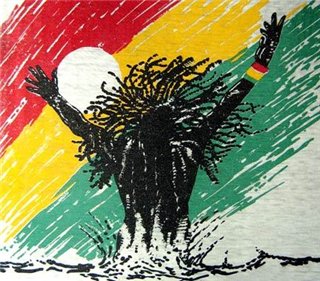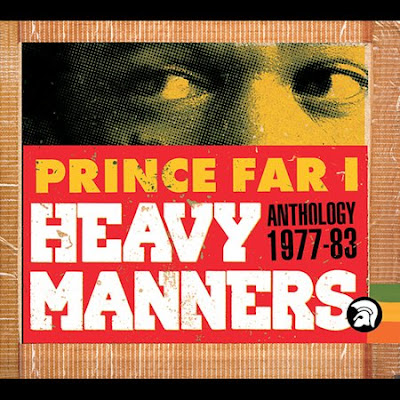Please note that the following post was written by Bulldog
Roots Reggae

To give you a brief definition of what roots entails, this particular sub-genre of reggae concerns itself with the lives of the ghetto and rural sufferer, with lyrical themes concerning Rastafari, poverty, repatriation, resistance to government oppression, anti-apartheid sentiments and the resulting social commentary. In many respects, roots is the earliest of reggae sub-genres and probably the first to become popular with the US and UK music listeners. Its heyday is seen as being in the mid-to-late 70s, given the rise in popularity of such singers as the aforementioned Bob Marley, his fellow Wailers Peter Tosh and Bunny Wailer, Winston "Burning Spear" Rodney and Horace Andy, along with groups like Steel Pulse, Black Uhuru and the Abyssinians. Stylistically, it had its roots in 60s Jamaican ska and rocksteady, and the experimentation of producers like Lee "Scratch" Perry with it would give birth to dub.
We'll get to that later though. Here are 10 essentials of this most militant and politically-inclined form of reggae, starting with a couple from my own vaults.
Prince Far I - Heavy Manners (Anthology: 1977-83) (2003)

Alright, it's an anthology, but short of getting hold of the labyrinth of one of those Trojan box set compilations, this collection of Michael James Williams' work at the height of roots' popularity is just about as good an introduction to the genre as you can ask for. Over that instantly-recognisable reggae backdrop, Williams, aka Prince Far I (and the self-styled 'voice of thunder') takes us through something of a guided tour of what exactly roots is in its purest form. It's a great taste of exactly where he was coming from musically before his tragic death in 1983. It's also worth mentioning that Williams preferred to call himself 'a chanter', which basically means he had a very powerful form of vocal delivery, doing the message behind the music a whole world of good - the militant, weighty political subject matter is really brought to the front of the mix over an endless supply of delicious, bass-heavy reggae grooves. Basically, in his attitude towards singing and songwriting, he was a Rastafarian version of Mark E. Smith. This does make the whole thing fairly difficult to non-reggae lovers at first, and it does take a while to click (I'll admit I wasn't so fond of this sound at first), so it's by no means for the casual listener. If, however, you have two or three roots reggae albums to your name already and are wondering where you should go next, give this a try for Pete's sake. It may be a compilation, but it's vital listening all the same.
Aswad - Aswad (1976)

In the shape of Aswad's self-titled debut, long before they went down that nauseating pop-reggae road as they did in the 80s, comes another essential taste of roots. Coming at you with a mere 8 tracks to its name, it again ticks all the right boxes when it comes to roots, with songs like Back To Africa concerning repatriation, Ethiopian Rhapsody regarding fundamental Rastafarianism and so forth. Along with staying true to their roots (see what I there?), Aswad give proceedings that much more of an accessible edge, much like their contemporaries such as Steel Pulse and Peter Tosh were making a living out of doing. Unfortunately, as I mentioned earlier, this would lead to the release of some pretty horrible pop music in the 80s, but on this album least Aswad stay true to what makes reggae great, giving us all a very presentable, smooth and accessible roots album, and definitely one that non-reggae fans should look to as a start.